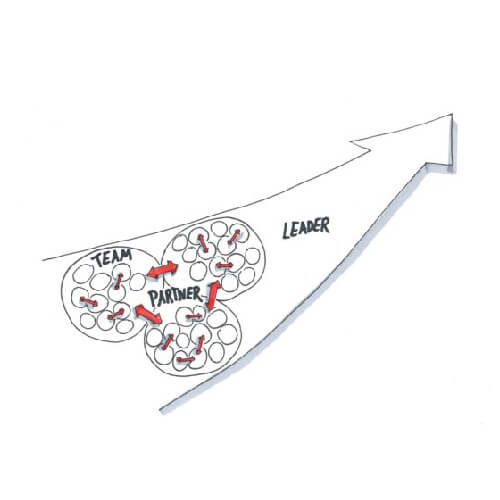Why is Roger Federer so successful? Why is he so well-liked and, above all, why is he still on top of his game?
Of course, several factors are in play: natural talent, training, strength of character… I could go on. In this article, I want to establish a connection between energy and performance.
Roger Federer’s performance has much to do with his energy levels and the way he manages his energy (or energies). He knows how to rest, recharge his batteries, eat sensibly, compete and, if he sometimes forgets, a member of his team or family, or one of his friends, is on hand to remind him.
So what about you?
In sport, as in one’s private or working life, managing one’s energy (or energies) is a key factor in performance.
The word “energy” comes from the Latin energia, which in turn derives from the classical Greek “ἐνέργεια” (pronounced enérgeia), meaning “force in action”.
A force (a source of power) in action inevitably has an impact. The more we are aware of it, the better we can control our impact, our performance. Our energy, like our other power sources, can be used positively (to build and strengthen) or negatively (to destroy).
It is important to be aware of this (self-reflection).
The two articles “Why don’t we have the impact we would like?” and “Leadership: legitimate power” will give you further food for thought on this matter.
By the way, do you know why my business is called “LP3”?
“L” is for leadership, and the 3 Ps stand for:
- Potential
- Power
- Performance
So, if I am aware of and develop my potential, I can control my power, my impact, which will result in the performance I am seeking to achieve.
But first, as in the case of Roger Federer, it is necessary to establish a balance between energy and resources.
In other words: what energizes me, what charges my batteries, and, on the other hand, what diminishes or drains my energy?
To answer this question, we need to consider the different forms of energy:
The neuro-sciences and psychology recognize four kinds of energy:
- Physical energy
- Emotional energy
- Mental energy
- Spiritual energy
Here are a few thoughts on the subject.
Physical energy
How well do I sleep? Have I taken enough breaks during the day? How healthily do I eat? Have I drunk enough (water!)? And, finally, have I done enough physical exercise (30 minutes)?
At the beginning of the afternoon, when starting a workshop, I get the participants to do a little exercise, which I call “1-2-3” and only takes five minutes (I won’t go into it in this article).
This exercise has three aspects:
- It requires concentration, which means that the participants have to “clear” their heads and stop thinking about what they were previously engaged with. This results in a gain in energy and performance in the present moment. In our daily lives, we move from one meeting to another, one phone call to another, one project to another. Our heads are always full of information. From time to time we need to refocus our attention.
- We need to have a bit of a giggle. Laughing releases energy and this is especially important after a meal.
- It engages both sides of our brain, which stimulates us and improves our performance, our creativity.
Emotional energy
By giving positive feedback and approval, you can boost the self-esteem of your colleagues, friends and employees. Self-confidence is a key factor in performance.
The article “Gaining in confidence through feedback” will point you in the right direction. Your emotional level is influenced by your circumstances, whether private or professional. In fact, it is impossible to separate them. For instance, if you are worried about your children or your partner, and this affects you emotionally, it will have an impact on your performance.
The skill you most need at this level is the ability to listen. The quality of your listening can help others. This ability to listen is also important in situations of change, because change arouses fears, which in turn will have an impact on energy levels.
On the other hand, as I mentioned earlier, enjoyment and laughter will have a positive contagious effect.
Mental energy
This is mainly about feeling secure psychologically (being allowed to make a mistake) and confidence. If I am unafraid, if I feel strong and confident in my resources, I will be able to act with courage. Two earlier articles deal with these topics (“Management: Affirming courage” and “Psychological presence as a driver of innovation”).
Spiritual energy
This fourth kind of energy is connected with the notion of things having meaning. In a professional setting, it is a question of having a clear vision (see also: The good boss has a clear vision).
Meditation, breathing exercises, yoga and other such practices are excellent ways of getting in touch with your energy or energies.
What do you do to manage your energies?
Ultimately, in a professional context this all ties up with my definition of leadership:
“The capacity to create momentum, to mobilize people towards a common objective, an attractive vision, via a stimulating, creative and inspiring framework.”
In other words, to create a framework in which your employees’ energies can be positively expressed with a view to sustainable performance.
May the force be with you!

